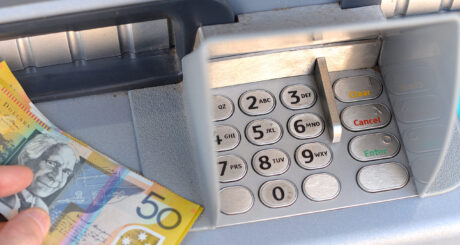The Australian government has made it clear they don’t want consumers gambling with credit cards. Gambling is an addiction, and research shows nearly 40% of Australians bet weekly. It’s an addiction that directly harms an individual’s financial future and causes stress.
Under the Interactive Gambling Amendment (Credit and Other Measures) Bill 2023, using credit cards for online gambling is prohibited. The government’s message? People shouldn’t bet with money they don’t have.
There are, however, nuances to what is defined as gambling in the rules that are important to understand.
What is gambling?
Gambling is an umbrella term that describes the action of paying money to win money in an event that’s determined by chance, such as betting on a horse race.
There are many different ways to gamble. The most common forms are:
- poker machines (‘pokies’)
- online gambling
- sports betting
- horse racing
- greyhound racing
- lotteries or ‘scratchies’
- bingo or keno
- casino table games
- online casinos
- novelty betting.
What is the ban on online gambling with a credit card?
The Interactive Gambling Amendment (Credit and Other Measures) Bill 2023 bans the use of credit cards and credit-related products, including digital currencies, for online gambling.
While credit card use has been banned from casinos and physical venues for years under the Interactive Gambling Act 2001, the government introduced this amendment to reduce the harm caused by online gambling and wagering.
Under this new legislation, all online casino, gambling or sports betting websites and apps can no longer accept credit-related products as a payment method — or they’ll face a hefty fine.
What’s banned
The Bill makes it illegal for online gambling companies to accept payments by credit cards, including through digital wallets. This means credit cards are banned from most forms of online gambling, including:
- online casino websites and apps
- horse racing websites and apps
- sports betting websites and apps.
What isn’t banned
A few things are exempt from the Bill, including:
- lotteries
- keno.
Anti-gambling advocates and financial counsellors are unhappy about this exclusion, given that playing the lottery is still problematic. While only representing a portion of the $21.2 billion Australians spent while gambling in 2019-20, the lottery is responsible for a staggering $2.6 billion in losses.
It’s also worth noting that lotteries are also exempt from BetStop, the National Self-Exclusion Register. So, even Australians who choose to block themselves from online gambling are still not barred from betting up to $10,000 online through lotteries.
Can I use my credit card to gamble?
Ultimately, the ability to use a credit card to place bets could depend on several factors, including how you want to gamble, the venue, the bank that issues your credit card, and the payment network that your credit card operates on (Visa, Mastercard or AmEx).
Because of that — in addition to constantly changing laws, regulations and attitudes toward online gambling — the answer to “Can I gamble with a credit card?” is a big “it depends.”
Types of credit card transactions that banks consider gambling:
It’s considered gambling when you use a credit card for any of the following activities:
- playing the pokies in a pub
- betting on a horse at a racecourse
- buying an instant scratchie lottery ticket
- betting on a sports game
- playing a gambling game on your phone
- using a betting website
- visiting a casino (even if you’re just buying drinks or dinner)
- bingo and raffles
- charitable gambling
- social gambling.
Banks and credit card providers that allow gambling transactions
Credit card companies generally discourage gambling and offer opt-in features to block gambling transactions.
| Bank | Rules and restrictions |
|---|---|
| CommBank | Allowed, as long as your statement balance stays under 85% of your credit limit. |
| Westpac | Cash advance rate. |
| NAB | Cash advance rate. |
| ANZ | Allowed, if under 85% of the credit limit — a cash advance rate. |
| AMEX | Prohibited. |
| Macquarie Bank | Blocked, if the charge is recognised as a gambling business. |
| Bendigo Bank | Cash advance fee. |
| Suncorp | Prohibited. |
| Bank of Queensland | Restricted. |
| Bankwest | Cash advance. |
| St. George | Cash advance. |
| Bank of Melbourne | Cash advance. |
| Citibank | Restricted. |
| HSBC | Cash advance, if they allow it. |
» MORE: Credit card fees and charges to know and avoid
The real cost of gambling charges
Even if you can find a way to use your credit card to gamble, you’ll have to face serious costs and consequences.
Financial costs
With banks that do allow gambling transactions, there are hefty associated cash advance costs. Banks are clamping down on these transactions, as gambling has major impacts on personal finance and psychological health — damage that’s predicted in excess of $8.4 billion per annum in Australia.
The cash advance rate depends on the bank and type of credit card. A standard rate is 2-4% of the total transaction, and there is no interest-free period on cash advances.
For example, if an individual gambles $3,000, the cash advance fee (3%) is $90, plus the interest starts getting calculated from day one. These costs can add up fast, especially if the credit card has a 22% interest rate — or higher. Before you know it, that initial $3,000 bet could quickly spiral into huge amounts of credit card debt.
» MORE: What is this charge on my credit card?
Psychological costs
There’s the obvious financial risk, but also the psychological costs, like the damage to an individual’s mental and emotional health, self-esteem, job and relationships. Gambling, in any form, is an addiction. It should be treated as such, even if it doesn’t present an obvious problem.
Leverage available protections, such as the lottery restrictions and gambling blocks you can place on your credit card. Fortunately, as the government takes action to block gambling transactions, banks will most likely follow.
🤓 Nerdy Tip
Gambling ranges in severity — from footy tipping with friends or coworkers to serious and secretive gambling. It’s important to know that even the fun and harmless gambling experiences can lead to bigger problems.
Should you gamble with a credit card?
There’s no valid situation where credit card gambling is a good idea. There are pros and cons to credit cards, and they can be wonderful financial products if you’re confident you can pay off your balance in full.
Take note of yourself if you find yourself trying to justify the gambling transaction. Gambling is a game of chance, so you cannot be certain you’ll pay it back with a win. Forget about rewards and promotional offers, as these tend to be other ways to justify using a card.
When in doubt, avoid using a credit card for any transaction that feels like a stretch. If you’re still unsure, talk to a close friend, family member or qualified expert. Don’t suffer in silence. Gambling is an addiction, albeit a less obvious one.
You’re not alone — here’s how to get help
- List your information on BetStop, the National Self-Exclusion Register.
- If your bank allows credit card gambling with a cash advance fee, set up a block for all your cards to prevent gambling authorisations.
- Access support through Gambling Help Online. Take an assessment, explore the forum, use the live chat or talk to a gambling counsellor. The Gambling Helpline 1800 858 858 is free and anonymous.
- Call the National Debt Helpline on 1800 007 007 for professional, non-judgemental advice and to work on a plan to deal with your financial responsibilities.
- Set up self-exclusion at your local venues. Avoid gambling venues and stay away from people you have betted with, however harmless it might seem.
- Use general and gambling-specific website-blocking software.
- Reach out to someone you trust — your partner, a close friend, family member or co-worker.
- Talk to a therapist — there’s usually more to addictive behaviour than meets the eye. Work with a psychology professional to help externalise the addiction, explore what’s unconscious, and develop coping techniques. It’s important to let go of the secrecy, as shame can feed addiction.
- Find a new way to spend your time. Replace old habits with healthy hobbies, to prevent boredom from leading to bad behaviours.
- Establish new goals and set milestones, one day at a time. Use this opportunity to get to know yourself again. Track your progress with self-help apps such as Reset and the 100-Day Challenge.
- Have a plan in place for when you’re feeling tempted to gamble. Assign a ‘sponsor’ to call in any moments of weakness.
Frequently asked questions about credit card gambling
Yes. You can use a credit card to purchase lottery tickets. Lottery tickets were excluded from the bill amendments, which disappointed financial experts. Check with your bank, as they might deny the transaction if they categorise lottery tickets as gambling.
No. Under the Interactive Gambling Amendment (Credit and Other Measures) Bill 2023, all online sports betting is blocked from credit cards.
No. Credit cards have long been banned for in-person gambling, such as at casinos, clubs, hotels and TAB outlets. The Interactive Gambling Amendment (Credit and Other Measures) Bill 2023 now also prohibits online gambling.
DIVE EVEN DEEPER

9 Things To Know Before Getting Your First Credit Card
Understanding the basics can save you time, money and frustration and get you on your way to building good credit.

Can I Transfer Money From A Credit Card To A Bank Account?
You can withdraw money from your credit card, but it’s best not to use it like a debit card.

Can You Withdraw Cash From A Credit Card?
You can withdraw cash from a credit card at an ATM or through an online transfer, but it’s a cash advance with higher fees and interest.

What Is A Credit Card Gambling Block?
Credit card gambling blocks are easily applied and removed. They’re easy to set up and remove. Once you put a gambling block in place, your bank will prevent any transactions registered under the merchant category code ‘Betting/Casino Gambling’.

